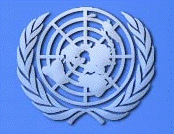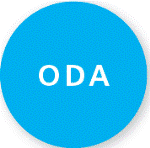Global Policy Watch
Published on Thu, 2015-03-05 19:54
The most recent step in the post-2015 negotiations was the 17-20 February debate in New York on the Declaration, meant to be the framework political statement. Despite strong emphasis on transformation and high aspiration, traditional lines were drawn between (mostly) Northern and Southern positions. At the same time, the debate was rich and nuanced, reflecting the increasing diversity of developing country concerns and their willingness to engage substantively on issues that will be critical to transformation. The process continues to suggest there is historic potential for redressing some of the longstanding imbalances driving deep social and economic disparities, and the impending collision with planetary boundaries. The notion that post-2015 is supposed to universally apply to every country and person in the world is unprecedented—never before has there been a development agenda this broad in scope. |
Published on Tue, 2015-03-03 18:59
Over the past twenty years we have heard constantly that the world has the resources to address global development challenges such as poverty, environmental degradation, diseases and inequalities. However, despite the resources “being there” human development plans have been consistently underfunded. Clearly, existing “trickle-down” and redistribution mechanisms are not being effective and will be woefully inadequate to fund the implementation of the universal SDGs agenda. |
Published on Tue, 2015-03-03 13:55
The Economic and Social Council (ECOSOC) of the United Nations discussed on 23-25 February the Secretary General report on the implementation of the Quadrennial Comprehensive Policy Review requested by the General Assembly. Under a cryptic title, the meeting addressed core issues, such as the UN development system’s role (and its relevance) in the post 2015 agenda. When it comes to the UN’s role in development, there is a broad consensus on the unique value the UN brings to the table because of its history, neutrality, convening power and universal representation. However, it is important to underline that the development ecosystem is being populated in recent years by emerging economic powers and new actors such as philanthropic organizations, large INGOs, regional institutions and development banks. Moreover, the UN is no longer the biggest funder of development activities, as it is now finds itself in second position, behind the European Commission. |
Published on Tue, 2015-02-24 10:17
The change in the current development paradigm that the leaders of the world are going to approve next September will require bold reforms and policy shifts. Can they be accomplished without involving the Finance Ministers? |
Published on Tue, 2015-02-24 09:59
The concept of Total Official Support for Sustainable Development (TOSD) is being promoted as an alternative to the current Official Development Assistance (ODA). Is this going to put more money on the table or just a “creative accounting” way to meet the commitments made by developed countries without paying? |
Published on Mon, 2015-02-09 20:07
2015 is a pivotal year. The post-2015 sustainable development agenda currently being drafted is premised on the reality that the present model of development is not working, given worsening inequalities and straining planetary boundaries. All countries and peoples—and the planet on which we depend–have the right to live with a better model, one that is inclusive and sustainable. |
SUSCRIBE TO OUR NEWSLETTER







